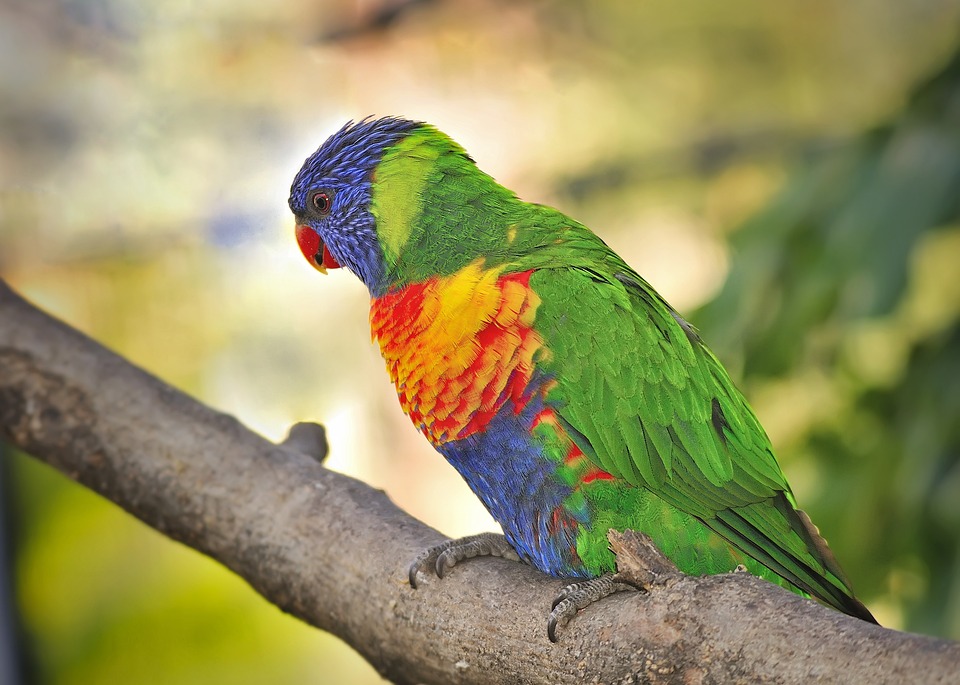Parrots are intelligent and social creatures that thrive on positive reinforcement training. Using rewards and treats can be an effective way to motivate and train your parrot. However, it’s essential to prevent them from developing possessive behaviors towards these rewards. In this article, we will explore some strategies to discourage parrots from becoming possessive over rewards or treats.
Understanding Possessive Behavior in Parrots
Possessive behavior in parrots can manifest in various ways, such as aggression, territoriality, or resource guarding. When a parrot becomes possessive over rewards or treats, they may display signs like lunging, biting, screaming, or becoming territorial over their food.
It’s crucial to address possessive behavior in parrots promptly to maintain a healthy and harmonious relationship with your feathered friend.
1. Promote Sharing and Turn-Taking
One effective strategy to discourage possessive behavior in parrots is to teach them the concept of sharing and turn-taking. By promoting sharing, you can help your parrot understand that rewards or treats are not solely theirs but can be enjoyed by others as well.
– Step 1: Start with Basic Commands
Begin by teaching your parrot basic commands such as “take it” and “leave it.” Use positive reinforcement techniques like clicker training or verbal praise to reward your parrot for following these commands.
– Step 2: Introduce Multiple Parrots
If you have more than one parrot, bring them together during training sessions. Offer treats or rewards to one parrot while the other watches. Encourage the parrot without the treat to observe and wait patiently.
– Step 3: Practice Turn-Taking
Gradually, introduce turn-taking by giving each parrot a chance to receive treats or rewards. Reinforce positive behavior by providing treats and praise when they patiently wait for their turn.
2. Implement Random Reward Schedules
Another effective technique to discourage possessiveness is to implement random reward schedules. Rather than providing rewards predictably every time, create an unpredictable pattern. This approach helps your parrot understand that rewards are not guaranteed every time, reducing their sense of entitlement.
– Vary the Timing
Instead of giving treats immediately after a command, vary the timing. Sometimes provide an immediate reward, while other times, delay it for a few seconds or minutes. This variability prevents your parrot from anticipating rewards and becoming possessive.
– Offer Alternative Rewards
Introduce alternative rewards or treats that your parrot enjoys. This diversification helps to shift their focus from being possessive over a specific treat to being open to different options.
3. Encourage Healthy Social Interactions
Parrots are social animals by nature. Encouraging healthy social interactions with both humans and other parrots can help prevent possessive behaviors.
– Daily Playtime and Interaction
Spend quality time with your parrot on a daily basis. Engage in interactive play sessions, provide mental stimulation, and offer affection. This helps to strengthen the bond between you and your parrot, reducing the likelihood of possessiveness.
– Socialize with Other Parrots
If you have multiple parrots, ensure they have ample socialization opportunities with each other. Parrots learn from observing and interacting with their flockmates, helping them develop healthier behaviors, including sharing and cooperation.
FAQs about Discouraging Possessive Behavior in Parrots
Q1. Is possessive behavior common in parrots?
A1. Possessive behavior can occur in parrots, especially when they believe resources like treats or rewards are limited or exclusive to them. However, with proper training and socialization, possessiveness can be minimized.
Q2. Can possessive behavior lead to aggression in parrots?
A2. Yes, possessive behavior can escalate to aggression if not addressed promptly. It’s essential to discourage possessiveness and replace it with positive behaviors to maintain a safe and harmonious environment.
Q3. Can positive reinforcement training help in discouraging possessive behavior?
A3. Absolutely! Positive reinforcement training is a powerful tool to discourage possessiveness in parrots. By rewarding desired behaviors, you can redirect their focus from possession to cooperation and sharing.
Q4. How long does it typically take to discourage possessive behavior in parrots?
A4. The time required to discourage possessive behavior in parrots varies. It depends on factors like the parrot’s individual personality, previous training experiences, and consistency in implementing the suggested strategies. Patience and consistent training are key.
Q5. Should I consult a professional if my parrot’s possessive behavior persists?
A5. If your parrot’s possessive behavior persists despite your best efforts, it’s recommended to consult an avian behaviorist or an experienced parrot trainer. They can provide personalized guidance and support to address the issue effectively.
By implementing these strategies and seeking professional help if needed, you can discourage possessive behavior in your parrot and foster a healthy and harmonious relationship based on cooperation and sharing.









